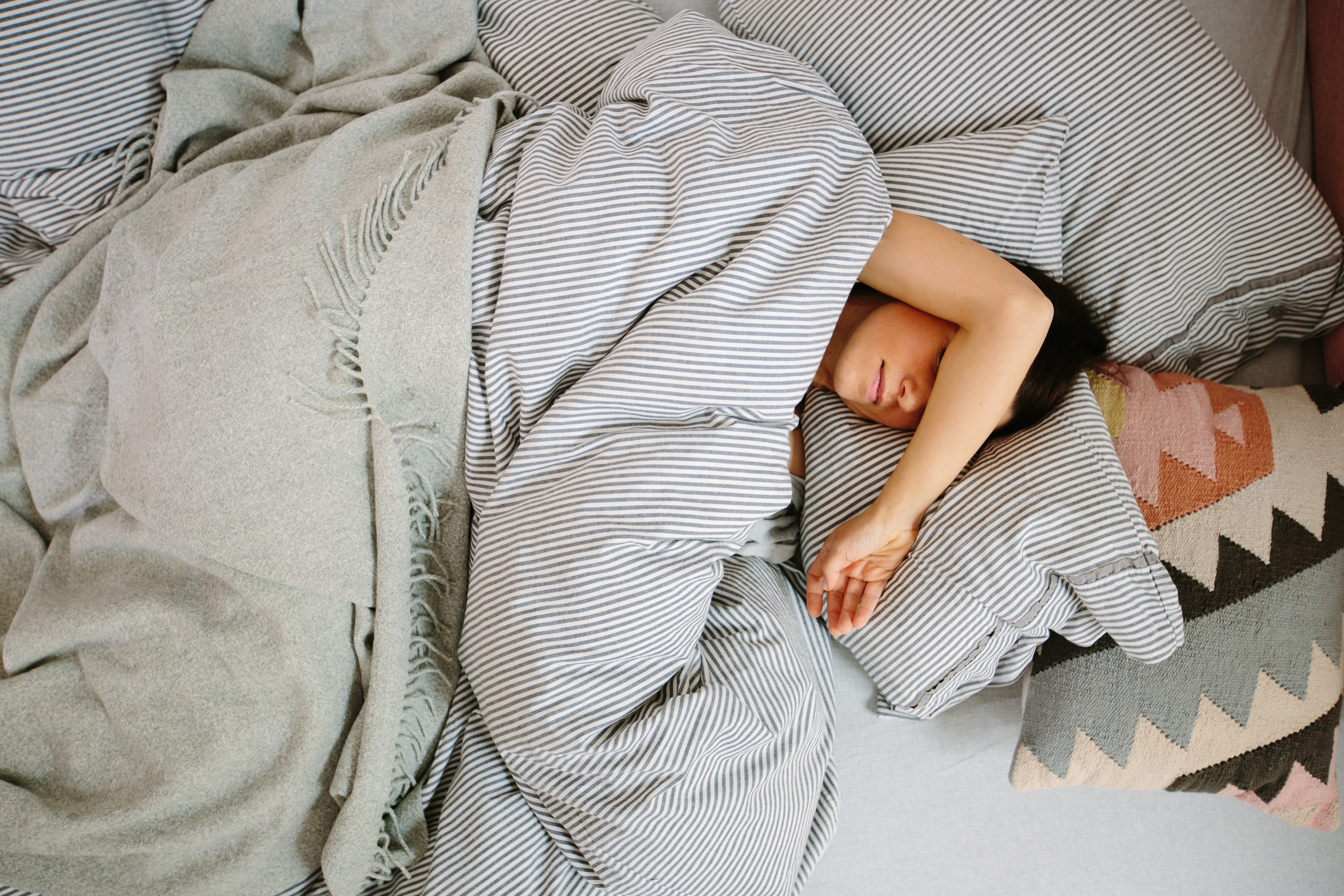- During the day, mental activity causes brain cells to release beta-amyloid proteins, which are basically waste byproducts. Sleep cleanses the human brain of these toxins.
- The buildup of these proteins is considered a sign of Alzheimer’s Disease.
- One night of bad sleep can cause these Alzheimer’s-related proteins to build up in the human brain, a new study found.
One of the most important things that happens when we drift off at night is a cleansing process: sleep helps remove toxins from the human brain.
Scientists recently found that even one night of sleep deprivation causes the buildup of a kind of protein that’s known to make up the plaque that surrounds nerve cells associated with Alzheimer’s in the brain.
A new study published in the journal Proceedings of the National Academy of Sciences demonstrated this effect in the human brain for the first time. The results indicate just how serious chronic sleep deprivation might be over time.
While researchers don’t know the exact cause of Alzheimer’s disease, they have found that the brains of people with Alzheimer’s generally have higher concentrations of beta-amyloid proteins. The proteins make up a plaque that’s associated with the disease and is thought to interfere with signaling between brain cells.
In the recent study, the beta-amyloid proteins built up in sleep-deprived participants regardless of whether they had a variant of a gene that’s associated with a higher risk of Alzheimer’s. That indicates a lack of sleep could play a role independent of genetic risk.
The cleansing effect of sleep
Beta-amyloid proteins are basically waste byproducts from the mental activity brain cells do during the day.
The researchers behind the recent study tested 20 healthy subjects (10 women and 10 men between the ages of 22 and 72) after a good night’s rest and after a night of sleep deprivation. They used a technique called positron emission tomography (PET), which is capable of measuring beta-amyloid accumulation in the brain.
The scientists found that even that one night of bad sleep was enough to cause beta-amyloid to collect in some parts of the brain where Alzheimer’s biomarkers are known to show up. That happened in subjects regardless of their age or gender.
Unsurprisingly, the researchers also found that sleep deprivation put the participants in a bad mood.
While the number of participants in this study was very small, the results were enough to demonstrate a biological effect. Scientists had previously shown a similar effect in mice and in the cerebrospinal fluid of humans, but it had not been observed in a real human brain until now.
The researchers can’t rule out the possibility that the higher levels of beta-amyloid proteins in people’s brains were there because they continued to build up as study participants were awake (as opposed to being higher because they hadn’t been cleared while asleep). But the net effect is the same: higher levels of Alzheimer’s-related proteins in areas of the brain where dangerous plaque is known to build up between cells.
It’s almost certainly the case that by getting good sleep, it’s possible to make up for the occasional poor night’s rest. But chronic bad sleep could potentially cause a bigger problem, since high levels of beta-amyloid plaque amongst brain cells have been shown to make it harder for people to sleep.
That negative spiral could potentially be a cause of Alzheimer’s.
There’s more to learn here about exactly how the accumulation of beta-amyloid could cause Alzheimer’s (and about how well we can clear that protein out). But for now, the researchers suggest that improving your sleep could be a good way to protect brain function and prevent the degenerative brain condition.
Originally published on www.businessinsider.com.
More from Business Insider:
Better sex starts with better sleep
14 of the biggest myths about sleep, debunked
Experts say lying on your back is the best sleeping position — here’s why
Follow us here and subscribe here for all the latest news on how you can keep Thriving.
Stay up to date or catch-up on all our podcasts with Arianna Huffington here.


